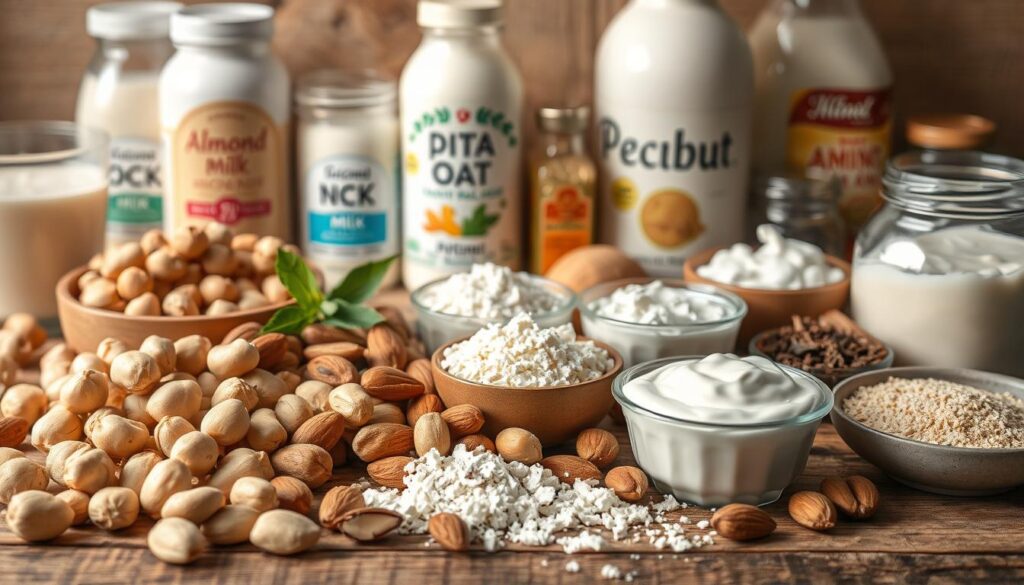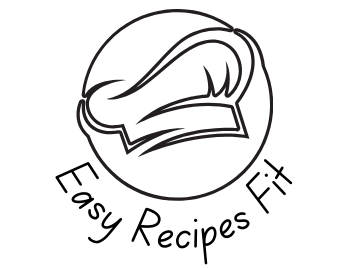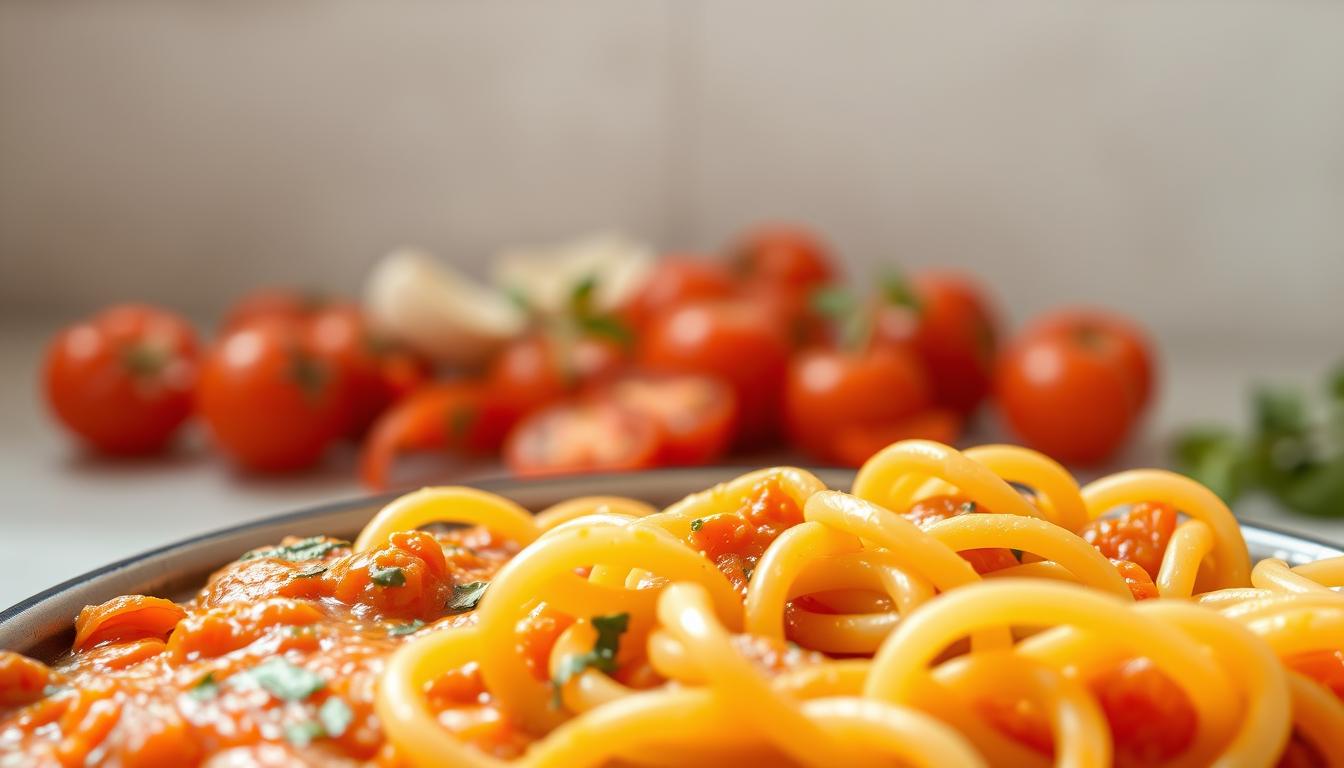Every kitchen has a secret, and today, I’m sharing mine. It’s a dairy-free pasta sauce that makes any meal special. I love rich sauces but don’t want to use heavy cream. So, I found a way to make creamy pasta sauce without it.
Imagine eating pasta with a sauce that’s silky and delicious. This sauce is healthier and tastes amazing. It’s a game-changer that lets you enjoy rich flavors without heavy cream.
In just 25 minutes, you can make a flavorful sauce that’s lower in calories. It’s perfect for pasta dishes and great for those who are lactose intolerant or watching their diet. This sauce will become your new favorite in the kitchen.
Key Takeaways
- Create a rich sauce without traditional heavy cream
- Reduce calories while maintaining incredible flavor
- Perfect for dairy-free and health-conscious diets
- Quick and easy preparation in under 30 minutes
- Versatile sauce that pairs with multiple pasta types
Understanding Cream-Free Pasta Sauces
Exploring cream-free pasta sauces opens a world of tasty options for those who care about their health. These new choices make cooking lighter and more adaptable, fitting many diets.
Benefits of Cream-Free Alternatives
Vegan pasta sauces have changed our view of creamy dishes. With 26% of homes avoiding dairy, these options bring exciting flavors:
- They have fewer calories than traditional sauces
- They’re good for those who can’t digest lactose
- They offer a wide range of tastes
- They add more nutrients to your meals
Health and Dietary Advantages
Choosing cream-free sauces cuts down on fat. Heavy cream has about 496 kcal and 53.7 grams of fat per 100 grams. This makes them a better choice for diet-watchers.
Texture and Flavor Profile
Healthy toppings don’t mean giving up on flavor. Ingredients like cashew cream, silken tofu, and plant-based milks make sauces smooth and tasty. Mixing soy milk with olive oil or oat milk with cornstarch can even match the feel of cream.
Creativity in the kitchen means reimagining classic recipes with innovative, health-conscious approaches.
Essential Ingredients for Creamy Pasta Sauce Without Cream
Making a tasty nut-based pasta sauce needs the right ingredients. These ingredients give a creamy texture without using heavy cream. You can make your pasta sauce better with new, tasty alternatives.
For a great cashew cream sauce, pick the best base ingredients. Nuts, plant-based milks, and thickening agents are your secret tools. They help make your pasta sauce smooth and creamy.
- Cashews (primary ingredient for nut-based pasta sauce)
- Almond milk or oat milk
- Nutritional yeast
- Cornstarch or arrowroot powder
- Vegetable broth
Knowing how these ingredients work together is key. Cashews blended up make a luxuriously smooth base. This base is just like traditional cream sauces.
| Ingredient | Creamy Contribution | Nutritional Benefit |
|---|---|---|
| Cashews | Smooth texture | High protein, healthy fats |
| Nutritional Yeast | Cheesy flavor | B-vitamins, complete protein |
| Plant Milk | Liquid base | Low calorie, calcium-rich |
Every ingredient is important for a rich, tasty sauce. It’s as good as traditional cream-based sauces.
Kitchen Tools and Equipment Needed
Making a tasty blended vegetable sauce needs the right kitchen tools and equipment. The success of your smooth, creamy pasta sauce depends on the cookware and utensils you choose.
Starting to make a blended vegetable sauce means having the right kitchen equipment. The tools you pick can greatly affect the sauce’s texture and quality.
Essential Cookware for Blended Vegetable Sauce
- Large Dutch oven or heavy-bottomed pot (around $499.95)
- Non-stick saucepan for delicate sauce preparations
- Glass measuring cup for precise ingredient measuring
Recommended Utensils
- Heat-resistant silicone spatula ($7.99)
- Long-handled tasting spoon for seasoning
- Sturdy wooden spoon for stirring
- Stainless steel ladle for serving ($19.99)
Blending Options for Vegetable Sauce
Your blended vegetable sauce needs strong blending tools for a smooth texture. Here are some options:
- High-speed blender for ultra-smooth textures
- Food processor for chunkier sauce variations
- Immersion blender for convenient in-pot blending
Investing in quality kitchen tools will make your blended vegetable sauce stand out. Each tool is key to creating a creamy, flavorful sauce that will wow your dinner guests.
Base Ingredients That Replace Heavy Cream

Making a tasty cauliflower cream sauce is all about using the right plant-based ingredients. You don’t need heavy cream to get that creamy feel in your pasta dishes.
There are many great base ingredients that can take the place of heavy cream. They add amazing flavor and health benefits to your recipes:
- Cauliflower puree: A nutrient-dense plant-based cream alternative with a smooth, velvety consistency
- Cashew cream: Creates luxurious sauces with natural richness
- Silken tofu: Provides protein and creates ultra-creamy textures
- Plant-based milks: Offers diverse flavor profiles
When making your cauliflower cream sauce, keep these substitution ratios in mind for the best results:
- Mix 2/3 cup soy milk with 1/3 cup olive oil to replace 1 cup heavy cream
- Combine equal parts Greek yogurt and whole milk for a high-protein alternative
- Use coconut cream as a one-to-one heavy cream substitute
Each ingredient has its own special qualities. This lets you try different combinations to find the perfect plant-based cream alternative for your dishes.
Seasoning and Flavor Enhancers
Making tasty creamy sauce substitutes is more than just swapping heavy cream. The right mix of herbs, spices, and aromatics can turn your non-dairy cream into a top-notch pasta sauce. It will be full of flavor.
Herbs and Spices That Elevate Your Sauce
With the right seasoning, your cream-free pasta sauce can be amazing. Here are some tips to boost its flavor:
- Oregano: Adds earthy Mediterranean notes
- Thyme: Introduces subtle herbal complexity
- Nutmeg: Provides warm, rich undertones
- Crushed red pepper: Delivers subtle heat
- Fresh basil: Brings bright, fresh aromatics
Powerful Aromatics Selection
Aromatics are key for depth in your non-dairy cream substitute. Roasted garlic is a standout. Six to eight cloves can greatly improve your sauce’s taste.
- Minced garlic: Intense, sharp flavor
- Caramelized onions: Sweet, rich undertones
- Leeks: Delicate, mild onion-like taste
- Green onions: Fresh, light seasoning
Cheese Options for Rich Flavor
Even without cream, cheese can still add a lot of flavor. Try both dairy and non-dairy options for more complexity:
- Parmesan: Sharp, salty notes
- Nutritional yeast: Vegan cheese alternative
- Cashew-based cheese: Creamy texture
- Mizithra: Tangy Greek cheese option
Try these seasonings to make a pasta sauce that’s creamy and full of flavor. You won’t need traditional heavy cream.
Step-by-Step Cooking Process

Making a tasty vegan creamy pasta sauce needs the right steps and ingredients. Start by picking top-notch plant-based items. These will make your dish feel like a fancy meal.
First, get your ingredients ready for the vegan creamy pasta. You’ll need these key tools:
- Large cooking pot
- Blender or food processor
- Wooden spoon
- Cutting board
- Sharp knife
Here’s how to make a smooth, rich sauce:
- Boil water for pasta, adding a pinch of salt
- Cook pasta for about 9 minutes until it’s just right
- While pasta cooks, start making your sauce base
- Sauté veggies like carrots, corn, and bell peppers
- Blend the veggie mix until it’s smooth
- Add nutritional yeast for a cheesy taste
Pro tip: The secret to amazing vegan creamy pasta is using deep, rich flavors. This comes from choosing the right ingredients and cooking methods.
“Cooking is about passion, so it may look slightly temperamental in a way that it’s too assertive to the naked eye.” – Gordon Ramsay
Your vegan creamy pasta sauce should be ready in under 30 minutes. Aim for bold flavors by seasoning wisely and cooking carefully. You want a sauce that’s creamy, filling, and all plant-based.
Achieving the Perfect Sauce Consistency
Making a smooth and creamy nut-based cream sauce needs some smart techniques. The sauce’s texture is key to a great pasta dish. So, knowing how to get the right consistency is very important.
For a nut-based cream sauce, you can use several ways to make it thick and creamy.
Thickening Techniques
- Use cornstarch: Mix 2 tablespoons per 1 cup of liquid to create a smooth thickener
- Incorporate pureed nuts for natural thickening
- Blend silken tofu for protein-rich creaminess
- Utilize reserved pasta water to bind sauce ingredients
Troubleshooting Tips
Stopping lumpy or thin sauces needs careful attention. Here are some expert tips:
- Always whisk cornstarch with cold liquid before adding to hot sauce
- Gradually add thickening agents to control consistency
- For nut-based cream sauce, blend ingredients thoroughly
- Let sauce simmer to activate thickening properties
Pro tip: Start with small amounts of thickener and adjust gradually to prevent over-thickening your sauce.
Best Pasta Types for Cream-Free Sauces
Choosing the right pasta can make your creamy pasta sauce without cream a hit. Different pasta shapes work differently with sauces. This creates unique textures and flavors.
It’s key to pick the right pasta for your sauce. The pasta’s shape affects how well it holds sauce. This changes your meal’s taste and feel.
- Long Noodles: Fettuccine and linguine pair well with smooth, velvety sauces
- Ridged Pastas: Penne and fusilli trap sauce in their grooves, boosting flavor
- Shell-Shaped Pastas: Conchiglie makes pockets for creamy sauces
Experts say pick pasta based on sauce thickness. Thicker sauces go well with sturdy pasta shapes. These shapes can hold the sauce’s weight.
“The right pasta shape can elevate a simple sauce into a gourmet experience.”
For a creamy pasta sauce without cream, try these pasta picks:
- Rigatoni: Thick tubes are great for chunky sauces
- Fusilli: Its spiral shape catches sauce well
- Penne: Its ridged exterior holds sauce well
- Farfalle: Its bow-tie shape adds a fun touch
Also, pasta made through bronze dies absorbs sauce better. This makes your dish taste more authentic and flavorful.
Storage and Reheating Guidelines
Storing your dairy-free pasta sauce right keeps it tasty and safe. Good storage keeps your sauce fresh and stops bacteria from growing.
Refrigeration Best Practices
Here’s how to store your dairy-free pasta sauce:
- Store in an airtight container
- Keep refrigerated at 40°F or below
- Consume within 3-4 days for optimal taste
Freezing Your Dairy-Free Pasta Sauce
Freezing is great for keeping your sauce for a long time. Here’s a quick guide for freezing:
| Sauce Type | Refrigerator Storage | Freezer Storage |
|---|---|---|
| Tomato-based Sauce | 3-4 days | Up to 2 months |
| Oil-based Sauce | 4 days | 1-2 months |
Reheating Tips
Reheating your sauce needs care to keep it smooth and flavorful. Avoid high heat that can cause separation or burning. Here are some good ways to reheat:
- Stovetop: Heat over medium-low heat, stirring frequently
- Microwave: Use 50% power in 20-second intervals
- Oven: Warm at 350°F for 10-20 minutes
Pro tip: Add a splash of water or plant-based milk to restore the sauce’s creamy consistency when reheating. Always check for signs of spoilage before consuming stored sauce.
Dietary Modifications and Substitutions
Creating pasta sauces that everyone can enjoy is key. Whether you’re making a vegan sauce or looking for other ingredients, these tips will help. You’ll make a delicious cream-free sauce.
Gluten-Free Alternatives
Making your pasta sauce gluten-free is simple. Here are some tips:
- Swap wheat thickeners for cornstarch or arrowroot powder
- Use gluten-free flour blends for sauces
- Try pureed veggies as thickening agents
Vegan Sauce Adaptations
Making a vegan pasta sauce is exciting. Here are some plant-based options:
- Cashew cream for a creamy base
- Nutritional yeast for a cheesy taste
- Silken tofu for a smooth texture
- Coconut milk for extra richness
“Creativity in the kitchen means transforming dietary restrictions into delicious opportunities.” – Chef Elena Rodriguez
If you have nut allergies, sunflower seed sauces are a great choice. Always check labels and watch for cross-contamination.
Your vegan pasta sauce can be just as tasty as traditional ones. Be bold and try new flavors that fit your diet.
Serving Suggestions and Pairings
Your cream-free pasta sauce is perfect for many meals. Try adding healthy toppings like toasted pine nuts, fresh basil, or nutritional yeast. It goes well with a crisp white wine or sparkling water with lemon.
For a full meal, add a simple mixed green salad or roasted veggies. The sauce’s green color and health benefits are great for those watching their diet. Add fresh herbs, extra virgin olive oil, or red pepper flakes for extra flavor.
This sauce is great for parties. Make it ahead and keep it in the fridge for 2-3 days. You can change it up with toppings like olives, roasted garlic, or plant-based cheese.
Don’t forget about how it looks. Serve in warm bowls, add extra spinach, and pair with a light side dish. This makes for a meal that’s both healthy and tasty.
FAQ
Can I make a creamy pasta sauce without using dairy cream?
Yes, you can! Use cashew cream, cauliflower puree, silken tofu, or plant-based milks. These alternatives give a rich, smooth texture without dairy. They’re great for different diets and keep the flavor and texture top-notch.
What are the health benefits of cream-free pasta sauces?
Cream-free sauces are healthier. They have fewer calories and less saturated fat. They’re perfect for those with lactose intolerance, vegans, or anyone looking for a healthier meal option without losing flavor or texture.
How can I thicken a pasta sauce without using cream?
You can thicken sauces with vegetable purees, cornstarch slurries, roux, or nut-based creams. Blended nuts also work well. These methods make a sauce as creamy as traditional ones.
Are cream-free pasta sauces suitable for people with dietary restrictions?
Absolutely! These sauces fit many diets, including vegan, gluten-free, nut-free, and dairy-free. By choosing the right ingredients and thickeners, you can make delicious sauces for everyone.
What kitchen tools do I need to make a cream-free pasta sauce?
You’ll need a blender or food processor, a large pot, a whisk, and measuring cups. These tools help you get the sauce just right and mix everything smoothly.
How long can I store a cream-free pasta sauce?
You can keep most sauces in the fridge for 3-5 days in an airtight container. Freeze them for up to 2-3 months for longer storage. When reheating, add a bit of liquid to keep the sauce smooth.
Can I add cheese to a dairy-free pasta sauce?
Yes! Nutritional yeast, vegan cheese, or plant-based cheese can add a cheesy flavor. They keep the sauce dairy-free while enhancing its taste.
Which pasta shapes work best with cream-free sauces?
Shapes like penne, fusilli, and rigatoni are perfect. They hold the sauce well, making every bite flavorful.

